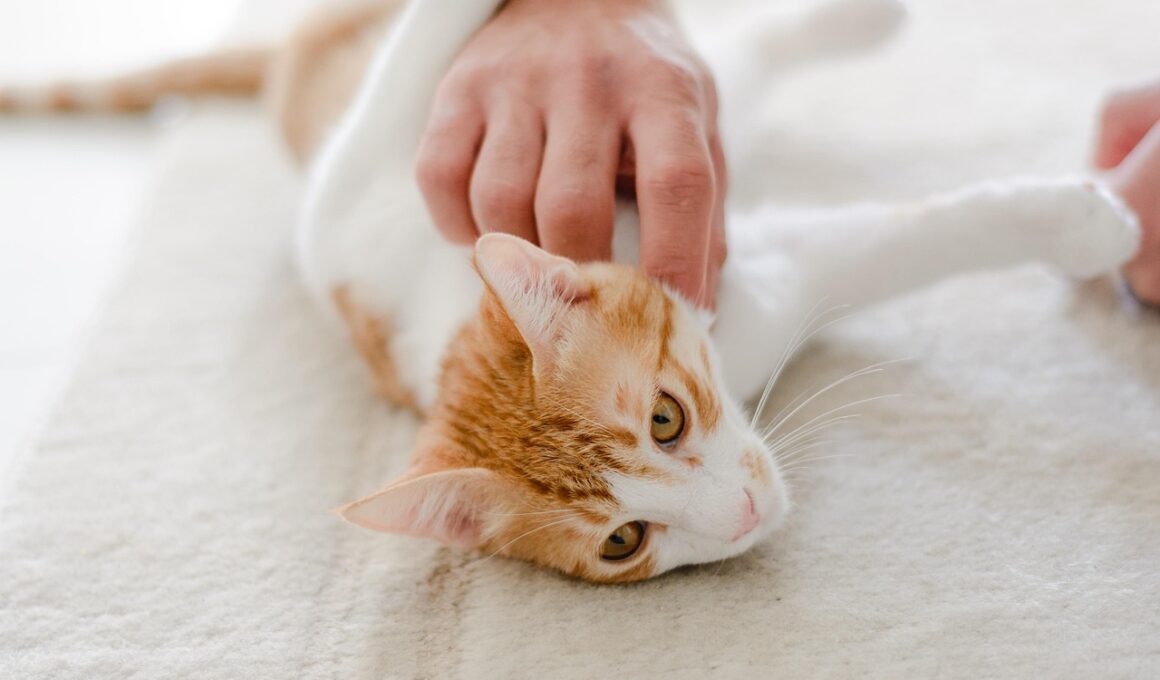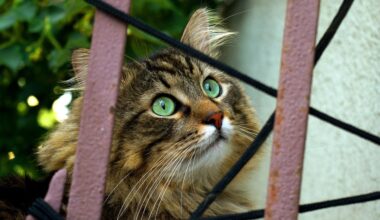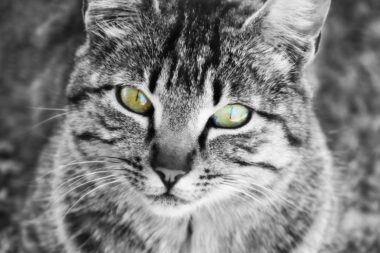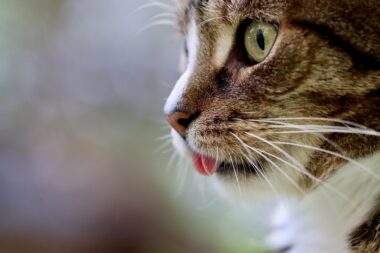Impact of Human Allergies on Cat Health and Behavior
Human allergies can significantly impact the lives of our feline companions. The presence of allergens in the household may exacerbate health problems for cats. When humans suffer from allergies, often medications or household interventions are employed. Such treatments might inadvertently affect our cats. For instance, common antihistamines and decongestants can cause drowsiness or hyperactivity when ingested by cats. It is essential to understand the complexity of this interaction. Cats may show secondary reactions to allergens that can lead to behavioral changes. An allergic reaction could prompt them to be more withdrawn, anxious, or aggressive. Additionally, the presence of allergens may increase the likelihood of chronic respiratory issues in cats, paralleling symptoms seen in humans. Frequent sneezing, coughing, or nasal discharge in cats are signs that should not be overlooked. Monitoring their behavior and health closely can help keep them safe and comfortable. Understanding the relationship between human and cat allergens is crucial for improving overall feline health. Regular veterinary check-ups can help manage and prevent these allergies effectively.
Cat allergies to human dander or pollen can result in various physical and behavioral symptoms. Owners might notice increased scratching or excessive grooming in their cats, leading to skin irritations or fur loss. This behavior is often a response to allergens that can trigger a reaction in sensitive cats. Furthermore, the stress associated with allergies may cause behavioral changes. For instance, a cat that is usually social may become reclusive, avoiding human interaction due to discomfort. Addressing these issues promptly can provide significant benefits. Regular cleaning routines to minimize allergens in the home environment can vastly improve a cat’s quality of life. Simple measures, such as using air purifiers, vacuuming frequently, and washing bedding, can significantly reduce allergens in the home. Owners should also consider using hypoallergenic cat products, including food and litter. Consulting with a veterinarian can provide guidance on management strategies for allergies affecting both cats and humans. Ultimately, creating a healthier home environment is a necessary step for both the cat and its owner. By being proactive, pet owners can ensure their cats remain happy and healthy amidst the challenges posed by allergies.
Behavioral Changes in Cats
The behavioral impact of human allergies on cats is an essential consideration. When cats sense changes in their environment, they often respond adversely. This reaction can be observed especially if there are changes in the owner’s routine due to allergy management. Cats are highly attuned to their surroundings and can sense emotional shifts in their owners as well. Stress in the owner may translate to stress in the cat. They may exhibit signs such as hiding away, decreased appetite, or increased vocalization when unsettled. Moreover, some cats express anxiety, which might escalate to destructive behavior. This behavior is a cry for help from their feline companions who need attention or reassurance. It’s crucial for owners to maintain a consistent routine, ensuring that their feline friends feel secure. Engaging in playtime and providing stimulation can help alleviate stress and anxiety in these situations. Using calming products like pheromone diffusers may also promote a sense of well-being. Awareness of how human allergies affect feline behavior leads to better communication between pet and owner. Engaging closely with a cat’s needs can cultivate a positive atmosphere for both parties.
Understanding the link between human allergies and feline health includes exploring various allergens present in the home. Common allergens include dust mites, mold, and pet dander, all of which can adversely affect a cat’s respiratory health. Cats exposed to these substances consistently over time may develop more severe issues, including chronic asthma. Veterinary specialists often recommend regular allergy testing for both cats and owners when symptoms arise. This approach helps to identify the specific triggers affecting the cat’s health. Treatment may include environmental management alongside medical interventions. On the medical front, corticosteroids are sometimes prescribed to control the inflammation caused by allergies. Additionally, alternative treatments like immunotherapy can be explored with a veterinarian specializing in pet allergies. Understanding these links reinforces the need for proactive measures in homes with both cats and allergy-prone humans. Cats thrive in environments where their health is prioritized. Maintaining a clean, allergen-free environment not only supports the cat’s well-being but enhances the quality of life for all household members. Regular veterinary care should also remain a pivotal component of overall pet health management, especially for susceptible cats.
Strategies for Managing Allergies
Managing allergies within the household can significantly improve the well-being of both humans and cats. Establishing dedicated spaces such as pet-free zones can help minimize exposure to allergens. Creating a comfort zone for the cat can reduce stress while ensuring they still have areas to explore. This approach additionally benefits the human members of the home. Regular grooming of the cat is vital in this scenario. Frequent brushing helps reduce shedding and dander, minimizing allergens in the environment. Owners should also consider professional grooming services, especially for long-haired breeds. Furthermore, investing in high-quality air filters and maintaining HVAC systems can drastically reduce airborne allergens. Cleaning carpets and upholstery regularly supports the reduction of dust and dander build-up. Ensuring proper ventilation within the home diminishes moisture and can reduce mold levels. Lastly, routine vet checks can help identify any arising health issues hastily. These strategies not only create a harmonious living arrangement but also promote early problem detection for both cats and their owners. A proactive approach toward allergy management can lead to a significantly enhanced quality of life.
Alongside conventional approaches, alternative treatments for managing allergies in cats are gaining popularity. Holistic therapies, such as acupuncture, have shown promise in alleviating certain allergy symptoms. Many cat owners report improvements in breathing and overall well-being after these sessions. Similarly, natural supplements containing omega fatty acids may help alleviate inflammatory responses associated with allergies, contributing to healthier skin and coats. Always consult with a veterinarian before introducing any new treatments. Behavioral therapies also play an essential role in addressing stress-related issues stemming from allergies. Utilizing interactive toys encourages engagement and helps distract cats from potential stressors. Furthermore, establishing routines that include regular play can create a stable and reassuring environment for sensitive cats. Overall, while conventional treatments may address symptoms, multifaceted approaches that incorporate behavioral, dietary, and alternative therapies can enhance the well-being of cats with human allergies in the household. Owner education remains paramount in understanding the breadth of potential responses to allergies. Every cat deserves a supportive environment that nurtures its health and happiness amidst the challenges brought by allergies.
Conclusion: Prioritizing Cat Health
Ultimately, the health of cats living with allergy-prone humans is a shared responsibility. Prioritizing the well-being of both cats and owners can foster a healthier household environment. Early detection and intervention make a significant difference in managing allergies effectively. Pet owners should remain vigilant, observing any changes in their cat’s behavior or physical health. Maintaining open communication with veterinary professionals can lead to better management strategies tailored specifically to each household’s unique situation. Additional considerations include educating oneself about various allergens and how they impact both species. Regular environmental assessments to identify and mitigate allergen presence will benefit cat health directly. Owners can also explore and educate themselves on treatment options that integrate both traditional veterinary medicine and holistic approaches. The evolution of pet care involves understanding the interconnectedness of feline and human health. Fostering a synergistic environment where allergies have minimal impact will enhance the lives of both parties. In conclusion, adopting effective management strategies can create a pleasant living space that promotes health, happiness, and harmony for cats and their humans.
Awareness plays a crucial role in managing allergies in households with cats. Recognizing symptoms early allows owners to seek immediate veterinary help, preventing long-term health repercussions for their feline friends. Dogs and cats commonly experience environmental allergies that can exacerbate asthma or skin conditions. Owners must continuously educate themselves about how allergies affect cat health. Furthermore, owners should not ignore the importance of fostering a consistent environment that supports both their health and their cat’s. Ensuring a smooth routine with minimized stress can significantly impact feline behavior. Allowing for ample playtime, providing a safe haven for their cats, and monitoring food are some essential aspects to consider. Collaboration between owners and veterinarians addresses potential allergy issues effectively. Creating a healthy space tailored to cater to everyone’s needs enhances overall happiness and reduces anxiety. In conclusion, managing allergies calls for collaboration, commitment, and ongoing education. Families with pets can thrive, ensuring good health and joyful living experiences amid the challenges posed by allergies and their consequences on both humans and cats. Through dedication, healthier lives can be achieved for both owners and their beloved feline companions.





